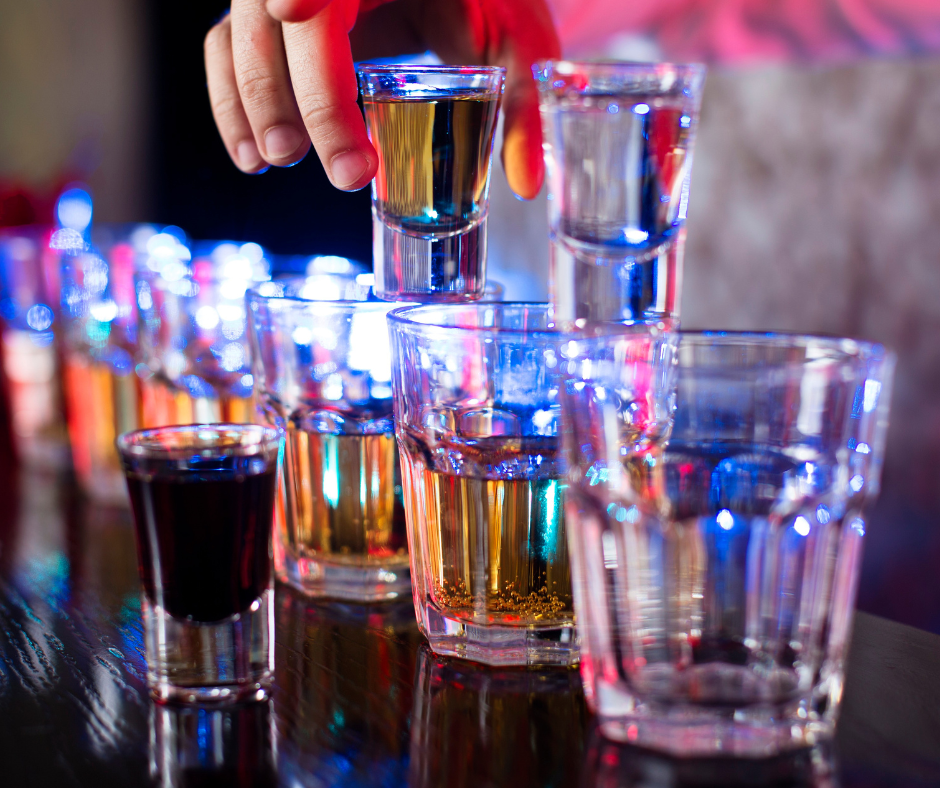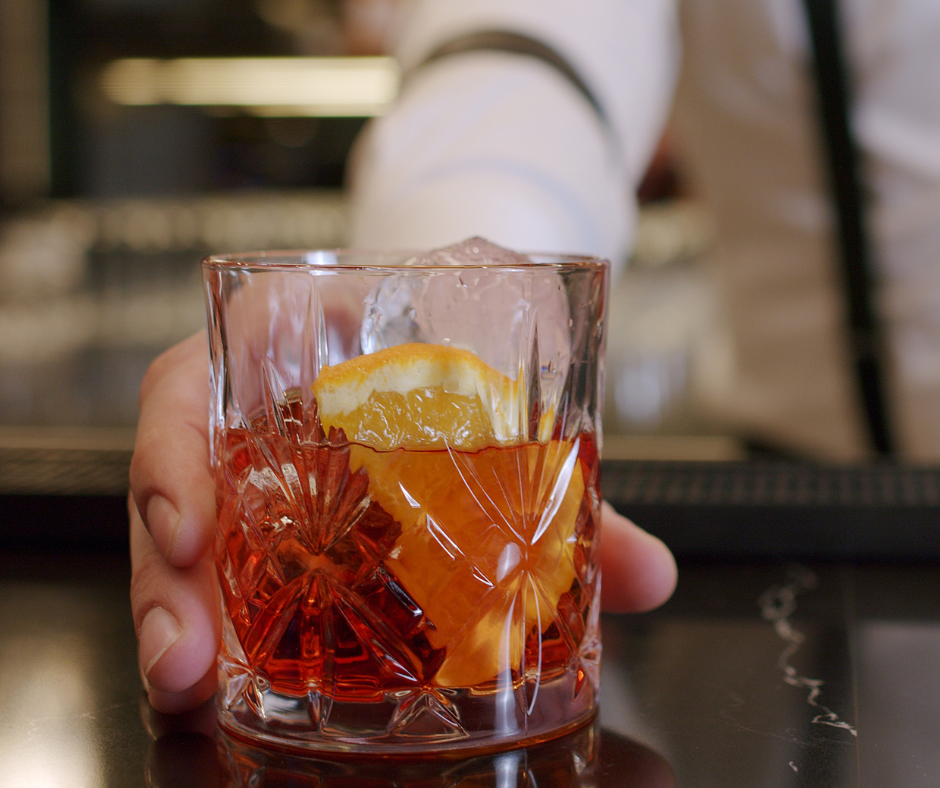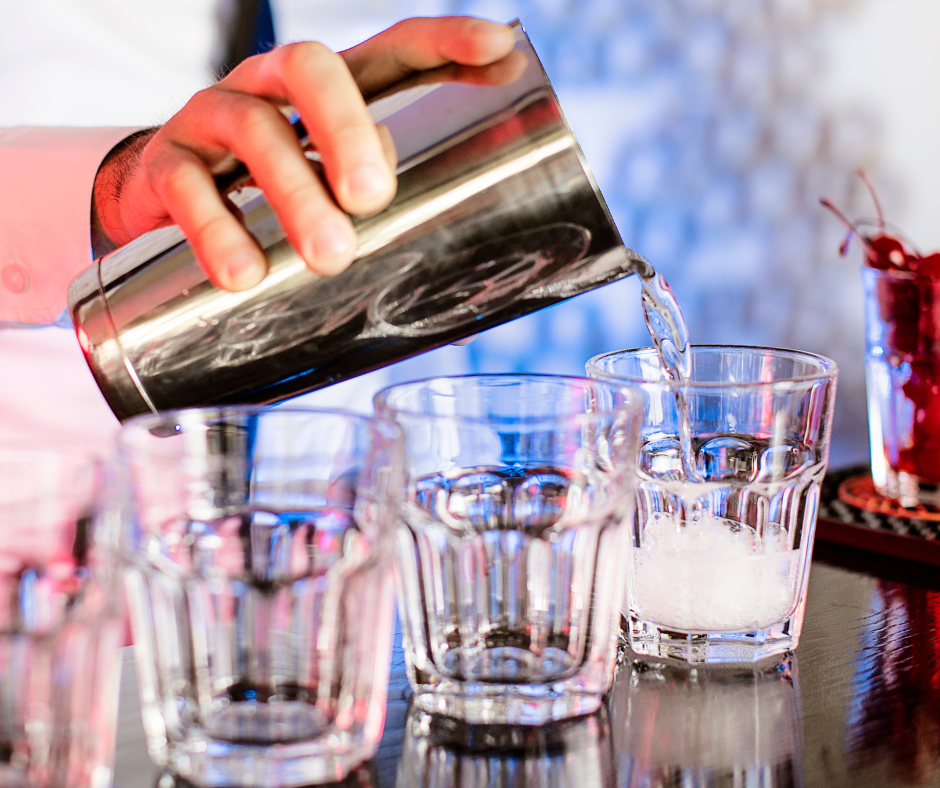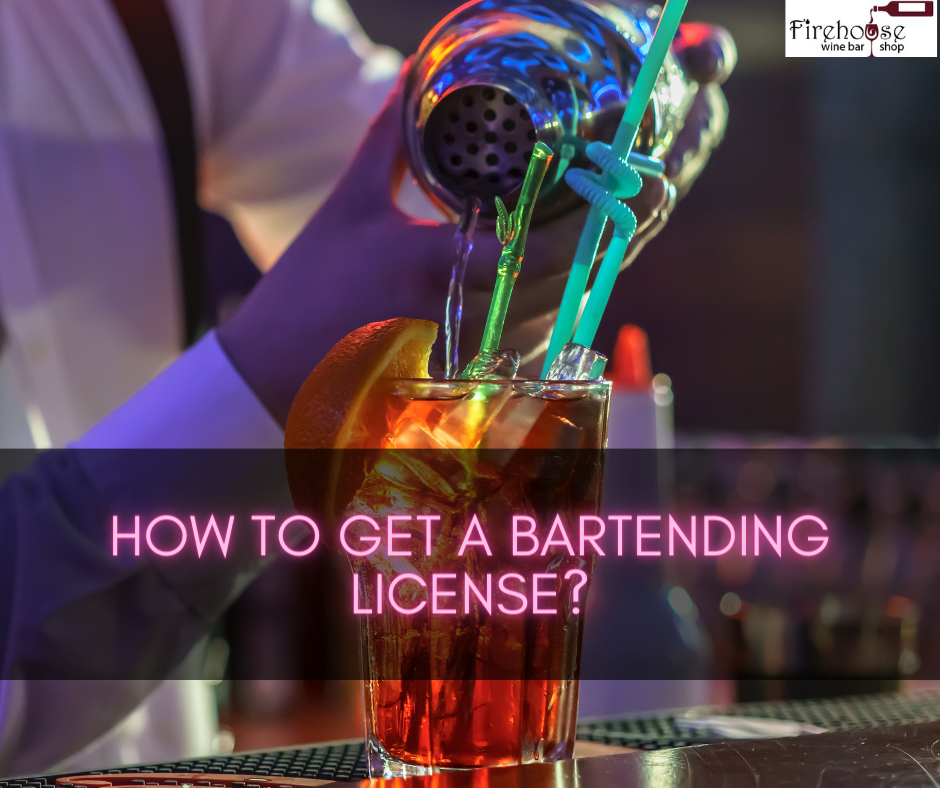Introduction
Starting a career as a bartender requires a lot more than having a good personality and knowing how to mix various cocktails. Understanding the legal requirements and responsibilities of serving alcohol is essential to minimize potential legal problems. One of the first steps to starting as a bartender is obtaining a license. This license gives bartenders the knowledge and the legal right to sell and serve alcohol at bars, nightclubs, and restaurants. This blog will help you explore How to Get a Bartending License.
What Is Bartending Licensing And Why It Matters?
Bartending licensing is the process of obtaining a permit or certification that gives you legal permission to serve alcohol. It includes training, education, and assessment to ensure you understand and comply with the laws and regulations surrounding the sale and serving of alcoholic beverages in your state or country.
Bartending licensing matters because it is required by law in some states and countries. Failing to have a license can result in fines, legal issues, and even closure of the establishment where you work. Even if it is not required by law in your area, obtaining a bartending license is crucial to protecting yourself and your employer against litigation in case of accidents or incidents involving alcohol.
Benefits Of Obtaining A Bartending License
Obtaining a bartending license offers many benefits, including:
- Bartending licensing educates you on the legal requirements of serving alcohol, including when it is appropriate to refuse service and how to handle difficult situations with intoxicated customers.
- Having a bartending license makes you more attractive to potential employers. It demonstrates that you have the skills, knowledge, and legal authority to serve alcohol safely and responsibly.
- Obtaining a bartending license enhances your professional reputation, giving you a competitive advantage over others without formal training.
- Bartending licensing protects you and your employer from legal action, fines, and possible closure of the establishment due to serving alcohol to minors or intoxicated patrons.
- Bartending licensing gives you the confidence and credibility necessary to succeed as a bartender. You will understand your legal responsibilities and how to ensure the safety of those you serve, making you a valuable asset to any employer.
In conclusion, obtaining a bartending license is an important step in building a successful career as a bartender. It provides the necessary knowledge, skills, and legal requirements to serve alcohol responsibly and protect yourself and your employer from potential lawsuits and legal issues.

Researching Bartending License Programs
When it comes to obtaining a bartending license, there are various options available to aspiring bartenders. The first step is researching different programs and finding the best for you.
Different Types Of Bartending License Programs
Many bartending license programs are available, including in-person courses, online programs, and hybrid options. Some programs include basic training on making cocktails and serving alcohol, while others offer more advanced training on topics like mixology, beer and wine knowledge, and responsible alcohol service.
Choosing The Right Program For You
When deciding on a program, factors to consider include the cost, the length and intensity of the course, and the type of certification or permit provided upon completion. It is also important to ensure the program is approved by your state or country’s alcohol regulating agency.
An online course may be a good option for those with busy schedules or who prefer to learn at their own pace. In-person classes can provide more hands-on experience and personalized instruction. Hybrid options may offer the best of both worlds, combining online coursework and in-person training.
Regardless of the type of program you choose, make sure it covers important topics such as responsible alcohol service, legal regulations, and customer service. This will give you the knowledge and skills required to excel as a bartender.
In conclusion, researching and selecting a bartending license program is crucial to becoming a professional bartender. Consider your options carefully and choose a program that suits your needs, interests, and career goals.
Understanding Alcohol Regulations
Bartending is more than mixing drinks; it entails adhering to legal regulations surrounding the sale and consumption of alcohol. It is essential to understand the legal implications regarding the sale of alcohol to avoid lawsuits or harm to customers.
Legal Regulations Surrounding The Sale And Consumption Of Alcohol
Every location has its alcohol regulations that bartenders must adhere to. These regulations are established to ensure that the sale and consumption of alcohol are safe and responsible. Examples of such regulations include the legal drinking age, the hours during which alcohol may be sold, and the maximum amount of alcohol to be served to customers.
Responsible Alcohol Service
Responsible alcohol service involves monitoring, identifying, and managing customers to prevent overconsumption or intoxication. Bartenders must also know when to deny service and how to handle potential confrontations from these instances. Furthermore, bartenders must learn how to estimate blood alcohol levels, serve standard-sized drinks, and provide plenty of water and food.
In conclusion, obtaining a bartending license requires researching and selecting the right program that meets the state’s or country’s approved regulators’ specific requirements. Understanding legal regulations around alcohol consumption is crucial to being a responsible bartender. By incorporating alcohol regulations and responsible service into the bartending license program, aspiring bartenders can become better equipped to provide a safe, enjoyable, and positive bar experience.

Practical Training
Becoming a bartender requires more than just pouring drinks. Aspiring professionals must master the art of responsible alcohol service, understand legal regulations, and hone their craft. Obtaining a bartending license is a practical and essential step in this process.
Hands-on Training And Experience
To gain practical experience, aspiring bartenders should choose a program that provides hands-on training. In-person classes offer the opportunity to work with real customers, practice making drinks, and learn how to handle difficult situations. Hybrid programs combine online learning with in-person training and can provide the best of both worlds.
Learning The Craft Of Bartending
Bartending is more than just making drinks. It involves understanding mixology, beer and wine knowledge, and customer service. Aspiring bartenders should choose a program that covers these essential topics to develop the skills needed to excel as a bartender.
Researching different programs is crucial in selecting one that meets individual needs, interests, and career goals. The cost, length, intensity of the course, and type of certification or permit provided upon completion are essential factors to consider. It is also necessary to find a program approved by the state or country’s alcohol regulating agency.
To serve alcohol professionally, it is crucial to obtain the necessary licensing. Aspiring bartenders should familiarize themselves with the legal drinking age, alcohol server certification, and regulations surrounding the sale of alcoholic beverages in their area. Responsible alcohol service involves monitoring, identifying, and managing customers to prevent overconsumption or intoxication. Bartenders must also know when to deny service and handle potential confrontations.
In conclusion, obtaining a bartending license requires research and selecting a program that meets the state’s or country’s approved regulators’ specific requirements. The right training and certification meet legal requirements and provide the knowledge and skills necessary to excel in the dynamic bartending industry.
Written And Oral Examinations
To become a certified bartender, one must pass written and practical examinations. While it may not be a state requirement to apply for permission to take the exam, scheduling the exam time with the bartender certification school may still be necessary.
The type of examination required may vary based on the mixology program chosen and state requirements. Some programs only require a written exam, while others may include a practical assessment. As you work through studying and preparing for your exam, it is essential to consult with your instructor to clarify any uncertainties you may have about the material covered during classes.
Preparing For Written And Oral Examinations
Using school resources can be beneficial to prepare for the written and oral examinations. For example, the program you attend may have a mock bar for student use, which you can utilize to get additional practice mixing drinks, preparing garnishes, and following proper sanitation standards for cleaning and organizing glassware. It is also crucial to review your understanding of responsible alcohol service, legal regulations, and mixology.
Tips For Passing The Exams
Here are some exam-taking tips that can help you pass your bartender certification exam:
- Study and understand legal regulations and responsible alcohol service to provide safe and ethical service to customers.
- Study and practice mixology, including beer and wine knowledge and customer service, to excel in the dynamic bartending industry.
- Take advantage of your instructor’s knowledge and experience as a professional mixologist.
- Utilize school resources such as a mock bar or practice exams to gain hands-on experience.
- Focus on the details, such as correct measurements and understanding the required techniques to achieve the desired flavor and appearance.
In conclusion, completing a mixology program, passing written and oral examinations, and obtaining a bartender certification are essential to becoming a professional bartender. Adequate preparation, utilizing school resources, and practicing the skills needed to excel is crucial to passing the written and oral examinations.

How to Get a Bartending License: Obtaining Your License
To become a certified bartender, it is crucial to obtain a bartending license. So, How to Get a Bartending License? This involves completing a mixology program, passing written and oral examinations, and obtaining the necessary paperwork and permits from the state. In this section, we will break down the essential steps involved in obtaining your bartending license.
Completing The Necessary Paperwork
You must complete the necessary paperwork before applying for your bartending license. Some states may require you to apply for permission to take the exam, while others may require proof of age, residency, and completion of a certified training program. Researching your state’s specific requirements is essential to ensure that you meet all the necessary criteria.
Receiving Your Bartending License
You will receive your bartending license after completing the mixology program and passing the written and oral examinations. This license will allow you to sell and serve alcohol legally. It is important to note that these licenses usually come with expiration dates and require renewal to remain valid. Renewal processes may vary by state, so staying informed and up-to-date on all legal obligations is crucial.
In conclusion, obtaining a bartending license is a necessary and practical step toward a career in mixology. By completing the required training, paperwork, and examinations, you will meet legal requirements and gain the knowledge and skills necessary to excel in the dynamic field of bartending.
Benefits Of Having A Bartending License
A bartending license is a prerequisite to securing a long-term professional bartending career. This license enables the legal selling and serving of alcoholic beverages to patrons. This section highlights some of the benefits associated with having a bartending license.
Job Opportunities And Career Advancement
Earning a bartending license gives bartenders many job opportunities across multiple hospitality sectors, including bars, restaurants, hotels, and casinos. The license also opens the door for career advancement, as many bartenders can progress to senior management positions. With years of practical experience, bartenders can move beyond bartending and become general managers, beverage consultants or open up their bar, among other careers.
Increased Knowledge And Professionalism
Completing a mixology program and obtaining a bartending license increases bartenders’ knowledge and professionalism regarding alcoholic beverages, ingredients, and preparation. With this knowledge, bartenders can create cocktails with various ingredients to fully meet customers’ preferences. Furthermore, the course teaches professional bartending skills such as cost control, inventory management, customer service, and over-served behavior recognition, which are integral for success in the industry.
In conclusion, obtaining a bartending license is crucial for a long-term professional bartending career. The license provides bartenders job opportunities across various hospitality sectors and opens the door to career advancement. Additionally, completing a mixology program and obtaining a license increases bartenders’ knowledge and professionalism, enabling them to create a broad range of cocktails while maintaining cost control and inventory management.
Successful Bartending And Mixology
Having a bartending license is crucial for securing a long-term professional bartending career. It enables bartenders to sell and serve alcoholic beverages in various hospitality sectors legally. Earning a license also opens the door for career advancement, with opportunities to move on to senior management positions or even open up one’s bar. However, obtaining a license is just the first step towards success in the industry.
Mixology As An Artform
Mixology is the art of creating cocktails by mixing different ingredients to balance their flavors and enhance their taste. To become a successful mixologist, one must thoroughly understand mixology’s principles and techniques. This knowledge is gained through completing a mixology program. Additionally, mixologists should have a keen sense of creativity and a willingness to experiment with new ingredients and techniques. Ultimately, the goal is to create unique and memorable cocktails that satisfy customers’ preferences.
Becoming A Successful Mixologist
To become a successful mixologist, attitude, and passion are just as important as knowledge and skill. Successful mixologists have excellent customer service skills and an ability to build rapport with patrons. They are also skilled at controlling inventory and managing costs to maximize profitability. Paying attention to detail is critical, ensuring that every drink is prepared perfectly, with consistent quality and presentation.
In conclusion, obtaining a bartending license is only the first step toward success in the industry. Becoming a successful mixologist requires a thorough understanding of mixology’s principles and techniques, creativity, passion, attention to detail, and excellent customer service skills. With these attributes, bartenders can create unique and memorable cocktails, build strong relationships with patrons and management, and advance their careers in the industry.
Conclusion
Now you know How to Get a Bartending License. A successful bartending and mixology career hinges on obtaining a professional bartending license, learning the art of mixology, perfecting customer service skills, attending to detail, and continually seeking new ways to improve and provide incredible customer experience. A bartender’s willingness to embrace change and innovation while remaining grounded in the fundamentals of the trade is essential for success.
Wrapping Up The Steps To Obtaining A Bartending License
Acquiring a professional bartending license requires fulfilling all necessary state or local requirements. One must also complete a state-approved bartender certification course, where topics such as laws and penalties involving minors and identifying the stages of intoxication in customers will be covered. Passing the test proves that one understands the state’s regulations well.
The Value Of Gaining A Bartending License In The Competitive Industry Of Hospitality
A bartending license increases a bartender’s knowledge base, enhances their skills, and provides opportunities to advance their career prospects in an increasingly competitive industry. It also helps build professional networks and improve visibility to potential employers. Aspiring bartenders must seek a state-approved course to increase their chances of success and growth.
FAQ: How to Get a Bartending License: Mixology Mastery: Navigating Bartending Licensing
Q: Why is obtaining a bartending license important?
A: Obtaining a bartending license is not just about pouring drinks. It is important to master the art of responsible alcohol service, understand the legal regulations surrounding the sale of alcohol, and hone your craft as a bartender.
Q: What steps should I take to secure my bartending license?
A: The first step is to research an online or in-person course that works for you. With an online course and licensing program readily available, obtaining your bartending license is easier than ever.
Q: What will I gain from obtaining my bartending license?
A: By obtaining your bartending license, you will meet legal requirements and gain the knowledge and skills necessary to excel in the dynamic industry. This will set you on the right path to work in a bustling city bar, a trendy cocktail lounge, or even start your mobile bartending business.
Q: What kind of training and certification should I look for?
A: Look for training and certification that covers responsible alcohol service, legal regulations surrounding the sale of alcohol, and the skills needed to craft delicious cocktails with flair.
Q: Can I obtain my bartending license online?
A: Online courses and licensing programs are available that make obtaining your bartending license more accessible and convenient than ever before.

Andre Lotz immigrated to the United States from South Africa almost 20 years ago. Still, he didn’t feel truly at home until he settled in Mobile—a city that reminds him of his childhood home of Fish Hoek on the southern cape of Africa.

